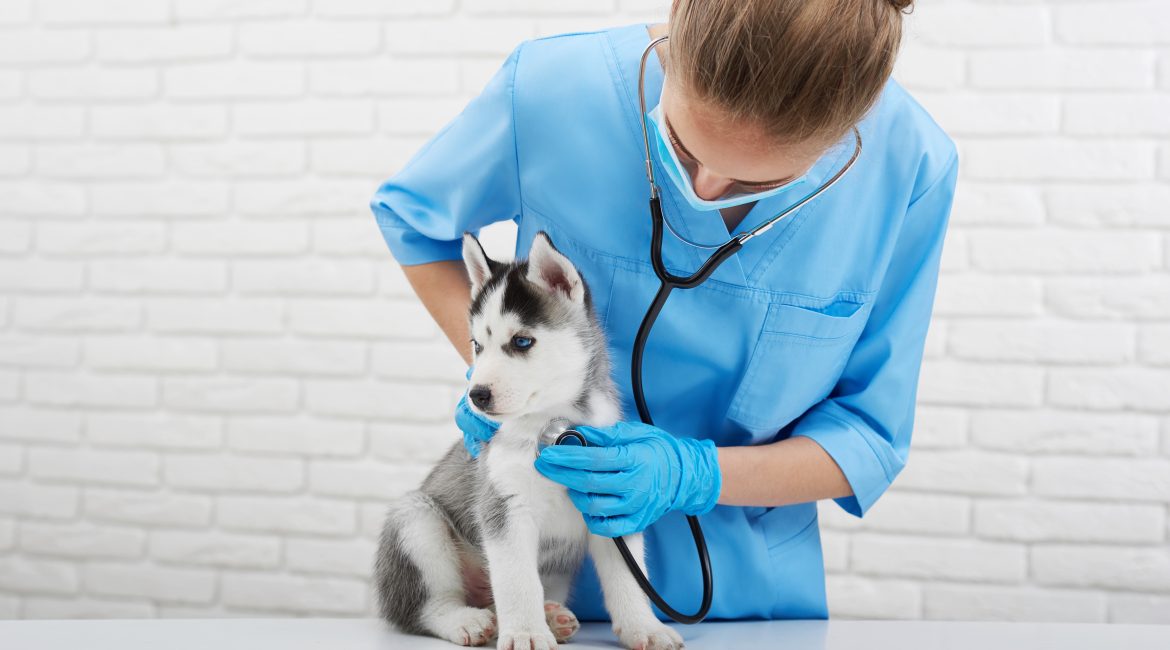Having a new furry member of the family can often leave you feeling overwhelmed in a mix up of mushy emotions and puppy love, which is what makes puppy vet visits tricky when your head isn’t in the game. We have put together these vital questions to ask your vet at your puppy’s first vet visit to make sure you get the most out of your consultation.
A new puppy comes with new experiences and naturally, a whole bunch of questions.
Bringing home a puppy is such an exciting time, but shortly after introducing your new furry member to your home and family, you need to ensure you take your new puppy for her first vet visit. By doing this, you will establish a great relationship with your vet in that he or she can get to know your new edition to the family. And you can ensure your pet’s health is put first before you even begin to house train them.
To ensure you are properly prepared to be the best paw-parent you can be, we reached out to our local vets to find out what kinds of questions you should ask to make sure you get the most out of your consultation.
The top 7 questions every puppy owner should ask at their puppy’s first vet visit
1. What kind of food should my puppy get and how much should I feed her?
The kind of food you feed your dog will have a lot to do with her physical wellbeing. Try to opt for a premium brand if you can afford it. Hill’s Pet Nutrition is a great choice. Have a look at their Science Plan Puppy Foods.
Your vet will be able to advise you on the food they recommend and will tell you how much to feed your puppy based on their breed and size.
2. What should my puppy’s feeding schedule be?
Most vets will suggest that you feed your puppy twice a day – in the morning and at night. It’s a good thing to be consistent and stick to a feeding routine and times.
3. How can I housetrain my puppy?
Here are our quick tips:
- Create a morning and night routine where you take your puppy outside to go to the toilet at approximately the same time.
- Take your puppy to the same spot every time.
- Reward her when she does her business outside.
4. How often should I have my puppy examined by a vet?
A routine care or wellness plan for puppies will usually involve a check-up every month or so for the first 6 months of your puppy’s life. This allows for vaccinations, deworming, diagnostic testing and other treatments to be performed. The best thing to do is chat to your vet about this as he or she can then create a wellness plan for check-ups for your puppy.
As your puppy gets older, visits will become less frequent. Of course, if you suspect something is wrong with your puppy, then phone your vet and chat to them about their symptoms and take them in for a consult if need be.
5. What kind of payment plans are there for vet visits? Are there any affordable ways to afford routine care?
The best answer to this question is pet insurance. Pet insurance is a great way to afford both routine and emergency vet bills. If you have pet insurance with us (Oneplan), then we also pay you before you see the vet and let you go to any vet of your choice.
Have a look at some of our cuddle-worthy pet care plans and pick one that best suits you and your budget.
6. How can I prevent my puppy from getting sick?
Routine care, vaccinations and regular check-ups are key methods for ensuring the health of your puppy.
Just like how humans have to go to the doctor for check-ups and health checks, dogs should do the same with their vets. Of course, some things you can’t prevent or predict, which is why pet insurance is a great idea to help cover high emergency costs.
7. Should I get my puppy microchipped?
This is up to you as a paw parent, but most vets will recommend that you microchip your pet. Microchipping is a relatively painless and extremely quick procedure and is a great way to find your pet if he ever wonders too far from home.
If you have any other questions, then make sure you think about them before you vet visit, write them down and don’t be afraid to ask your vet about them.
There is no such thing as a silly question and it’s always a good idea to know the answer from a professional than to try and Google it. Trust us on this one. Remember to always chat to your vet as he or she will be able to give you expert advice. The above information is merely a guideline, and you should always ensure you and your vet are on the same page.
Your Pet Insurance Family,
Oneplan




